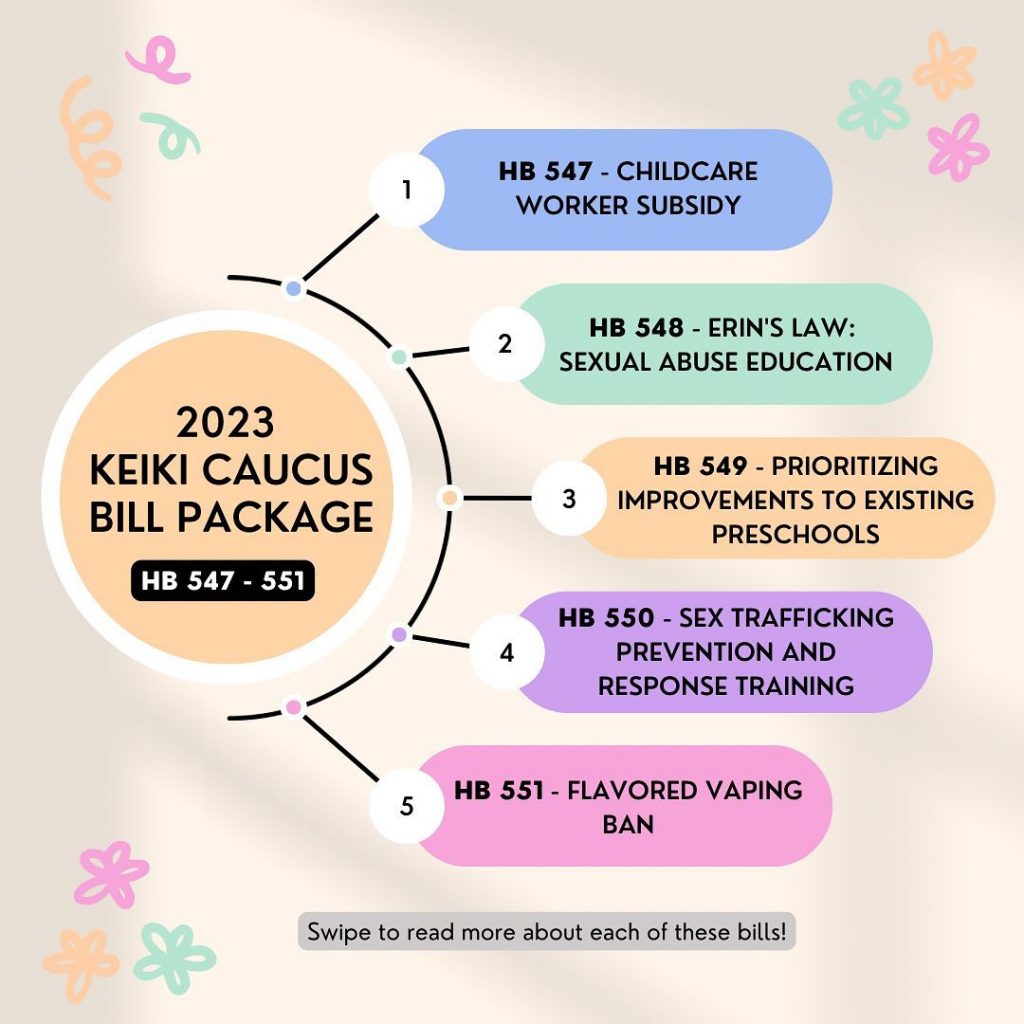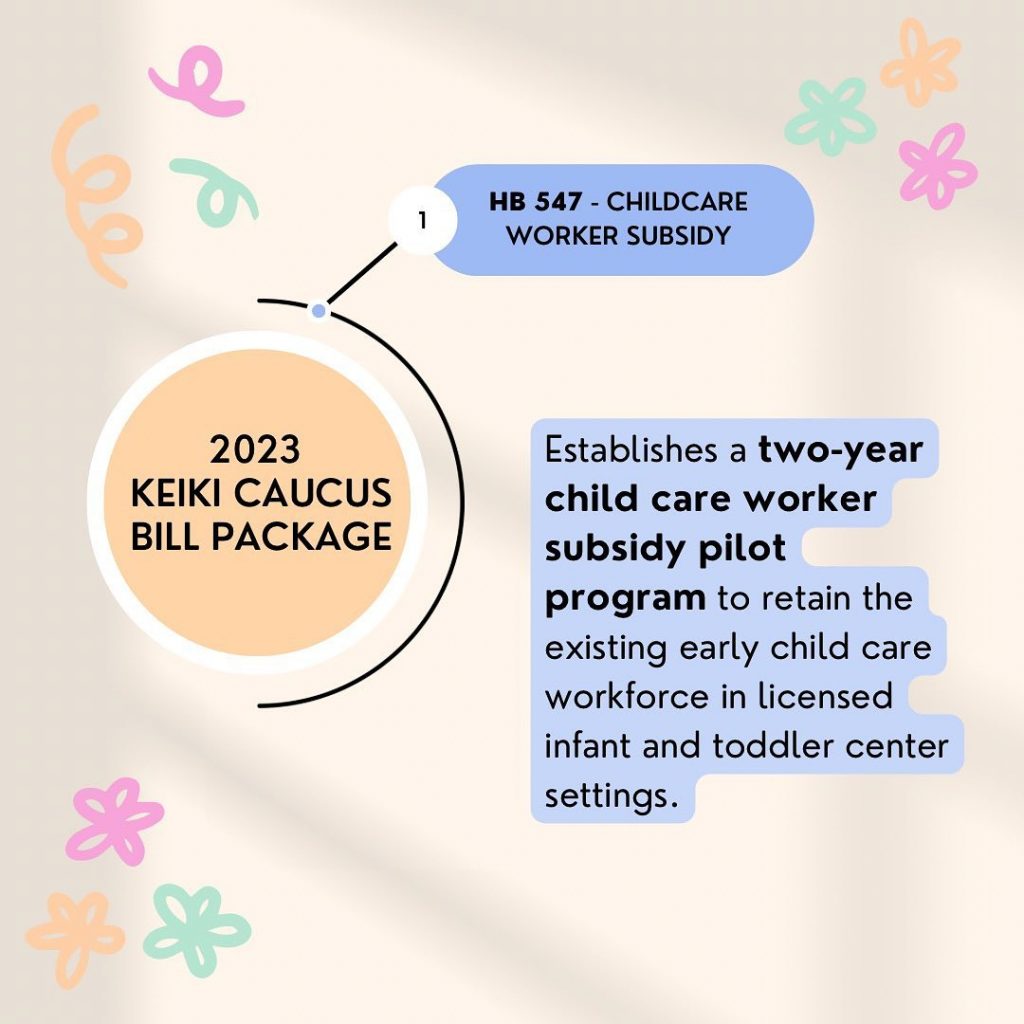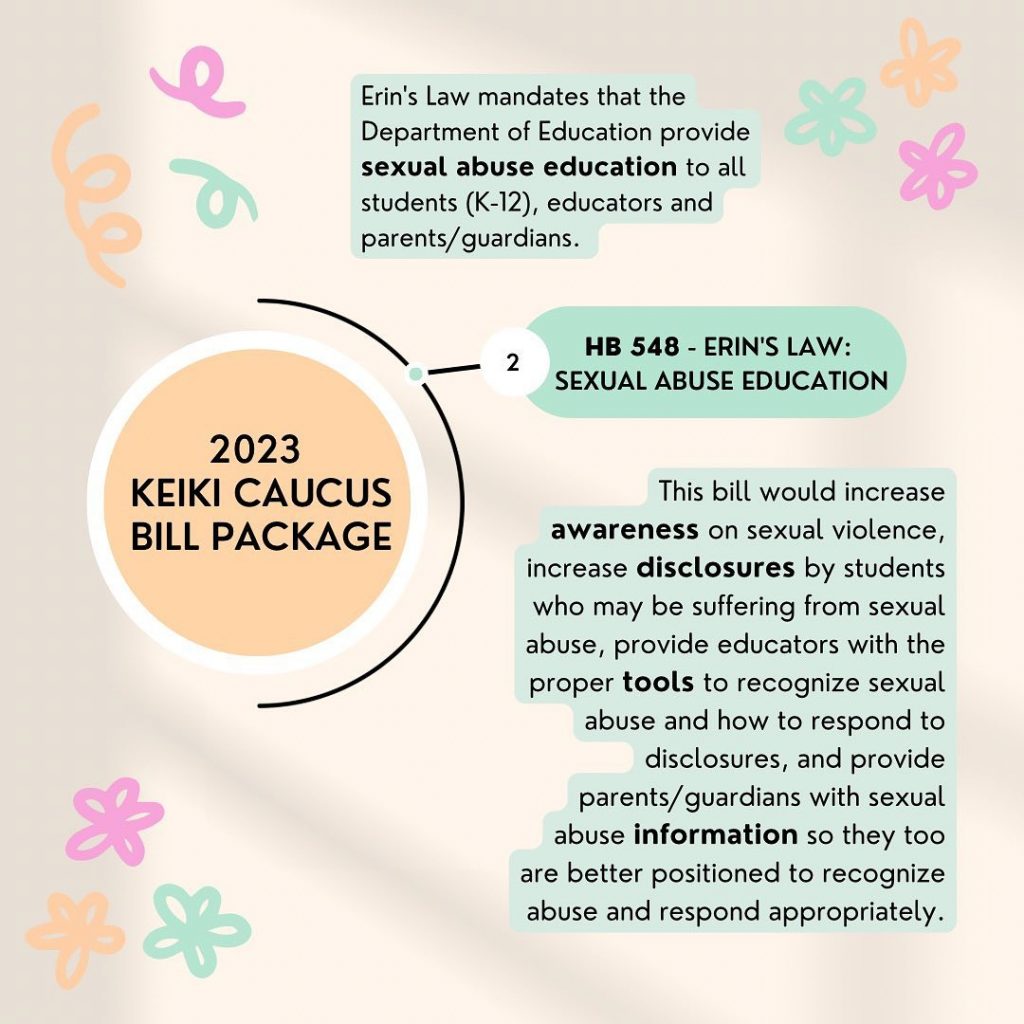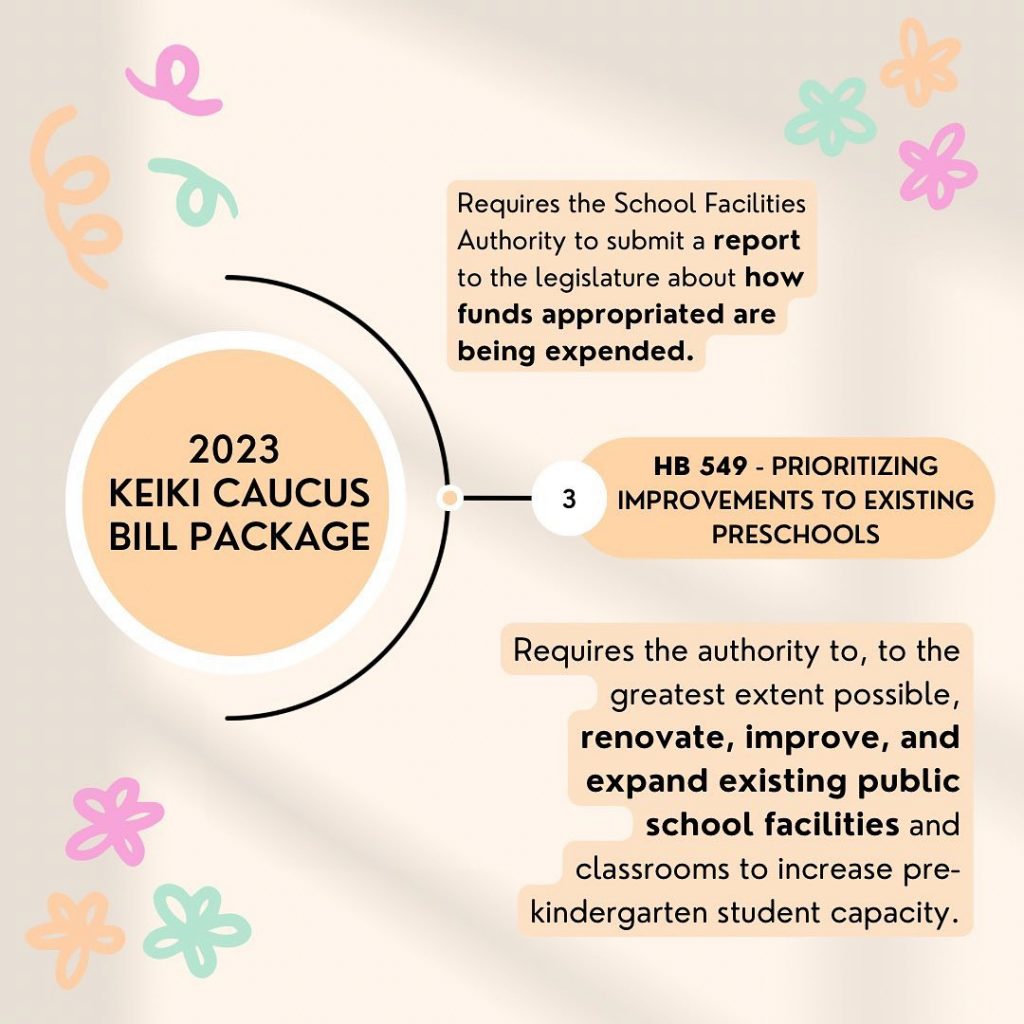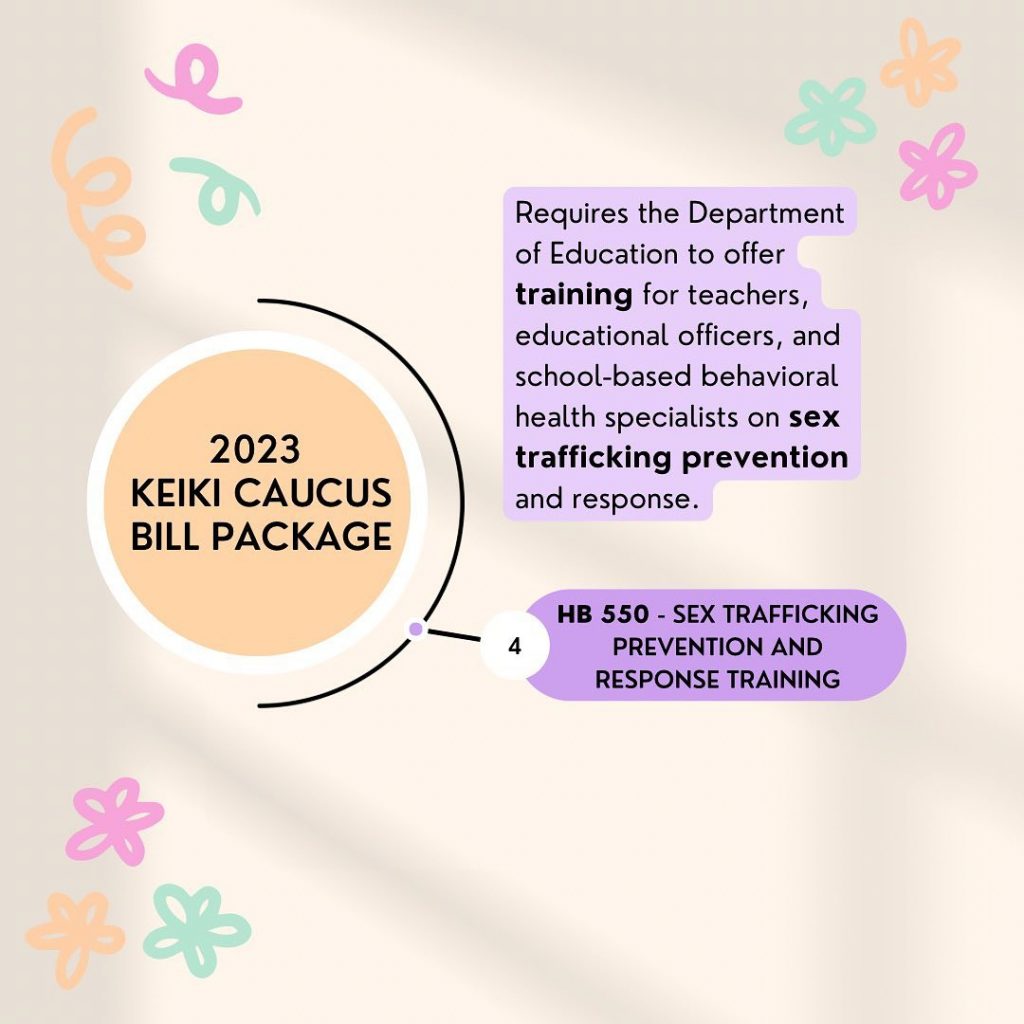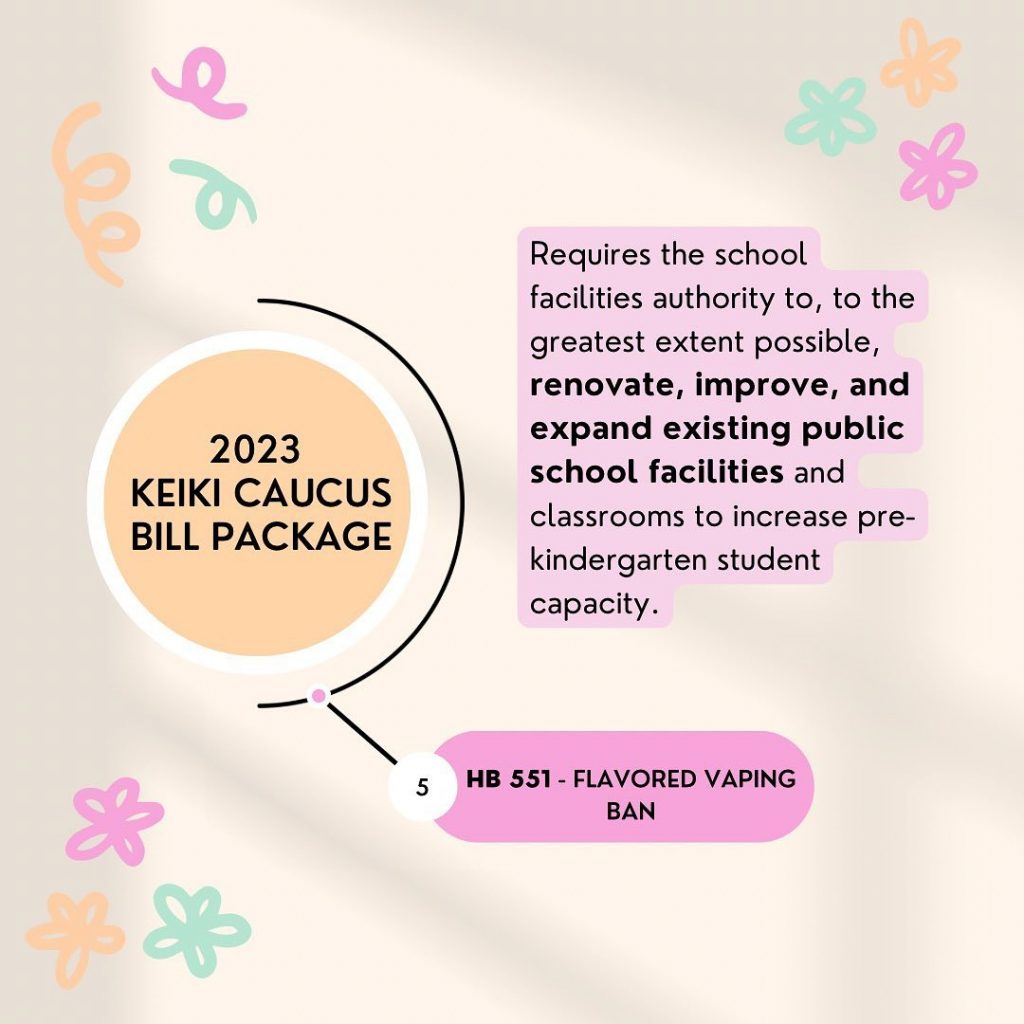Keiki Caucus has five Hawaiʻi State legislative priorities for 2023
HONOLULU — Nearly 30 years, the Keiki Caucus was formed to listen to Hawaiʻi’s young people and elevate their voices in the State Legislature.

The bipartisan caucus is made up of more than 130 state legislators, community advocates, department and agency leaders, and individuals who are committed to the well-being of Hawai‘i’s children.
On Jan. 17, the caucus hosted a press conference at the state Capitol in Honolulu to outline its bill package and policy agenda a day before the opening sessions of the 32nd Hawai‘i Legislature.
Created in 1994, the caucus proposes, drafts, supports and implements policy changes to improve the lives of Hawai‘i’s keiki. This year’s priorities were identified in partnership with the Hawai‘i Children’s Policy Agenda.
The five bills that form the core priorities for the caucus this year are:
- House Bill 547, which would establish a two-year infant and toddler child care worker subsidy pilot program to assist in retaining the state’s existing child care workforce.
- House Bill 548, which would create the Erin’s Law Task Force to review policies, programs and curricula for educating public school students about sexual abuse and sex trafficking prevention, culminating in a systemwide sexual abuse prevention education program.
- House Bill 549, which would require the state’s School Facilities Authority to renovate, improve and expand existing public school facilities and classrooms to increase pre-kindergarten student capacity.
- House Bill 550, which would require the Hawai’i Department of Education to offer training for teachers, educational officers and school-based behavioral health specialists on sex trafficking prevention and response. The bill was introduced by Big Island state Rep. Jeanné Kapela.
- House Bill 551, which would prohibit the sale of flavored tobacco products and the mislabeling of e-liquids as nicotine free.
The Keiki Caucus also supports youth-requested action on Vote 16, a national campaign calling for extending voting rights to 16- and 17-year-olds on the state and local levels; strengthening the child welfare system; ensuring that child care provision is accredited; and elevating civic education in the state’s public schools.
“Community advocates and legislators have worked diligently over the legislative interim to craft proposals that provide holistic responses to the needs of Hawai‘i’s children and youth,” said state Rep. Amy Perruso, majority whip of the state House of Representatives and a co-convener of the caucus.
Judith Clark, executive director of Hawai‘i Youth Services Network, said several of the Keiki Caucus priorities for 2023 were recommended by youth who participated in the 29th annual Hawai‘i Children and Youth Summit in October 2022.
The summit gives keiki and young adults the opportunity to come to the state Capitol and share their vision for what Hawai‘i needs to be a better place to live, learn and work.
Clark said it’s important that legislators listen to what youth have to say because they are not just part of the community, they are affected by the decisions made about their lives and deserve to be part of the dialogue.
“Our legislators and public officials need to know what young people view in their communities, observe, care about, are affected by, and I am very proud of the Keiki Caucus members of our Legislature for taking our youth voice most seriously,” she said.
Community advocates echoed their support for the priorities outlined this year by the Keiki Caucus.
“Now is the time for lawmakers to show up for keiki and families,” said Deborah Zysman, executive director of Hawai‘i Children’s Action Network Speaks! “Together, let’s move these policies forward to make Hawai‘i a place where all keiki can thrive.”



